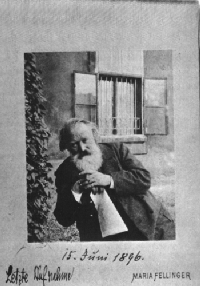Brahms never clicked with me until a year or so ago. Not just because I'm a Bruckner/Wagner man through and through - his music just never resonated with me (as said, until a year or so ago).
On a break in Italy recently I had much music on my trusted (but soon to be superseded FiiO DAP) and it was the Brahmsian music that really caught my ear. Some Schoenberg and especially Pfitzner. HP's piano trio is an amazing piece of music, but so indebted to Brahms.
Coincidentally, on my return, many CDs were awaiting me on my doormat, despite my avowal for downloads. One of which was a Philips Duo of Dvorak Trios. Such is the Brahms debt, IMHO.
We don't talk so much about Brahms on here, but is his legacy not enormous?
.
On a break in Italy recently I had much music on my trusted (but soon to be superseded FiiO DAP) and it was the Brahmsian music that really caught my ear. Some Schoenberg and especially Pfitzner. HP's piano trio is an amazing piece of music, but so indebted to Brahms.
Coincidentally, on my return, many CDs were awaiting me on my doormat, despite my avowal for downloads. One of which was a Philips Duo of Dvorak Trios. Such is the Brahms debt, IMHO.
We don't talk so much about Brahms on here, but is his legacy not enormous?
.






Comment